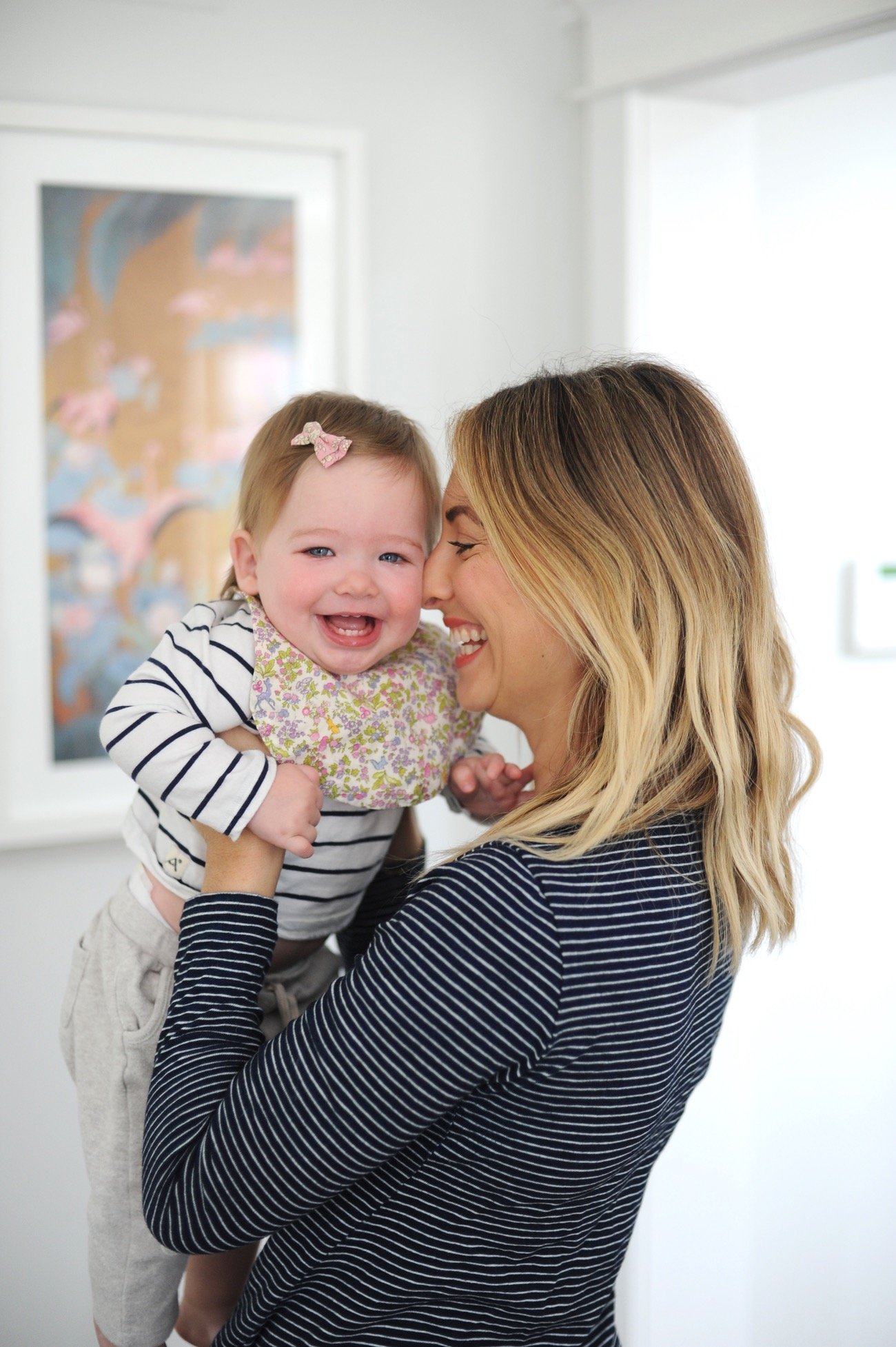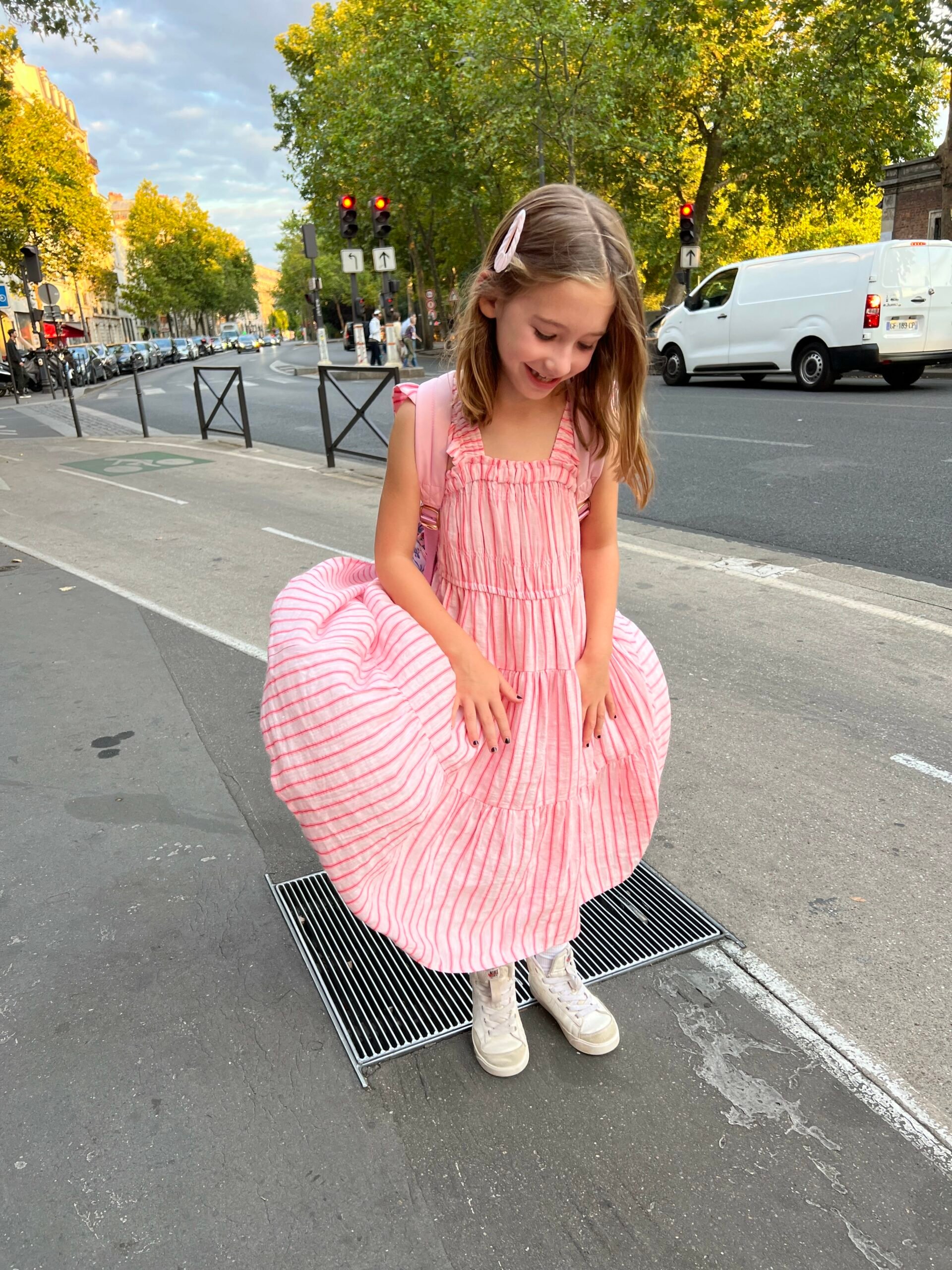
The first year of parenthood is intense. It’s encompassed my highest highs and my lowest lows, but as we approach Sloan’s first birthday, I’m really proud of the way we’re raising her. G and I aren’t perfect parents by any means, but most days it’s fair to say all three of us are really happy. In these last eleven months or so, we’ve also learned a lot. We don’t know if we want more kids yet, but if we were to do it all again, there a few things we’d do differently. Here are seven specific tips we’d tell ourselves as first-time parents.
1. Figure out the sleep solution that works for your baby. Before we brought Sloan home, we came up with our sleeping arrangement. She’d sleep right by my side of the bed in the bassinet that we’d set up a few weeks before my due date, and that would be that. I was so exhausted from not sleeping after her birth, that I didn’t even think to have a backup plan, or consider that she might not take to the decision we’d made. Cut to the first night we came home from the hospital, and our little set-up imploded immediately – Sloan was miserable as soon as I set her down in the bassinet and refused to fall asleep. I couldn’t get her to stop crying, so finally, at 3am, I went into the guest room where my mom was sleeping. She reassured me that there was no “right” way for Sloan to sleep, as long as it was safe. So I brought her out to the couch, where she eventually fell asleep on my chest. A few days later we transitioned to her stroller’s bassinet, where she slept for the next few months. Ultimately there are a lot of different schools of thought based on what’s best for both the baby and parents, but as long as it’s safe and works for your family, that’s the right choice.
2. Be willing to pivot. In Sloan’s first few months, we were so regimented and found so much comfort when things were in a groove, that we sometimes didn’t notice the early changes she was going through. For example, we probably kept her wrapped in swaddles for a little longer than necessary, since the moment we stopped using it, her activity level and physical skills increased exponentially. Children change rapidly and rather than finding comfort in a current situation, be open and ready to adjust your perspective and approach to handling their growth.
3. Travel early. A number of people gave us this advice, but we really didn’t take it to heart. Looking back, traveling with a small infant is much easier than a 1-year-old, for the simple fact that newborns are essentially small bundles that don’t move, basically eat one thing, and sleep for hours at a stretch (if you’re lucky.) Also, if you choose to breastfeed, you don’t need to pack additional food, which is one less detail to worry about. When they’re older, they’re darting across the room faster than you think a small child can travel on their hands and knees, interested in everything, and need to be entertained throughout all of their conscious hours.
4. Fill them up at bedtime. Sloan was always an efficient eater, so our bedtime ritual was initially very brief. She’d eat for about 10 minutes, then pull away, I’d burp her and she’d nod out. Invariably, she’d wake up a few hours later, famished. Around the third month, my friend Meghan recommended we feed her a little earlier, let it digest for a bit/give her a bath, then top her off with a bottle. This small change was the first step in getting her to sleep through the night.
5. Be chill about breastfeeding. This was one of the toughest parts of early motherhood for me (I wrote about it here), because I was determined to breastfeed for the first year. After about 5 months, and numerous milk producing strategies, I began to dry up and we had to move Sloan on to formula. I felt I had failed my child, but seeing how incredibly happy and healthy she is helps me understand that I needed to check my ego at the door and simply provide whatever was best for her.
6. Maintain physical regimen. Having a baby kicks your butt, in more ways than one. The first few months can be grueling on your sleep and eating schedules and by the time they start weighing 15-20 lb, the act of repeatedly picking them up and carrying them around is a full day workout. G and I both realized how important it is for parents to stay active in advance of the baby’s arrival, whether it’s going to the gym, daily walks, yoga, etc., because the rapid growth of your kids will only become more physically demanding. Holding a baby is no joke on your lower back.
7. Be okay with people helping (and doing things differently than you). I’m kind of a control freak, so initially, whenever a family member or friend would offer help, I was reluctant to accept it. I wanted to make sure the processes we had in place (i.e. sleeping, eating, etc.) were done exactly the way we planned them and we were fearful any deviation would result in a complete breakdown of our work. In the end, kids are very pliable and responsive to a variety of things and there’s no single way to do a task. Plus, your friends and family are much more willing to help out when things aren’t so crazy rigid that they’re nervous to mess up.
P.S. 15 things every new parent needs, my favorite moment of motherhood, and our initial approach to parenting,





